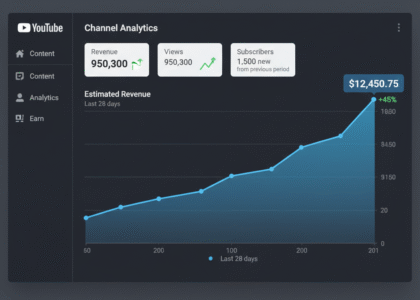Taking out a personal loan for the first time can be a daunting experience. Whether you’re using the loan for a major purchase, consolidating debt, or covering an unexpected expense, it’s essential to understand the ins and outs of borrowing. This article offers practical personal loan tips to help first-time borrowers make informed decisions and manage their loans responsibly.
Why Understanding Personal Loans is Important
Personal loans can offer flexible repayment terms and interest rates, but they can also lead to financial strain if not managed properly. Knowing how personal loans work, the factors that influence approval, and how to repay them effectively is crucial for maintaining good financial health.
Here are some essential personal loan tips to consider before taking the plunge.
1. Understand the Types of Personal Loans Available

Not all personal loans are created equal. As a first-time borrower, it’s important to know the difference between the various types of loans available. Here are the most common types:
- Unsecured Loans: These loans don’t require collateral, making them ideal for individuals who don’t have assets like property or savings to pledge. However, they often come with higher interest rates.
- Secured Loans: Secured loans require collateral, such as a car or home. While these loans may offer lower interest rates, they come with the risk of losing your asset if you default.
- Debt Consolidation Loans: These loans are specifically designed to help borrowers pay off multiple debts by combining them into a single loan with one payment and potentially lower interest rates.
By understanding these types, you can choose the loan that best fits your financial needs.
2. Check Your Credit Score Before Applying
Your credit score plays a major role in determining your loan’s interest rate and approval. Lenders will assess your creditworthiness based on your credit history, and a higher score generally results in better loan terms.
- Good Credit Score (700+): You’re likely to receive lower interest rates and favorable terms.
- Fair to Poor Credit Score (500-699): You may still qualify for a personal loan, but expect higher interest rates and stricter terms.
Tip: If your credit score is lower than you’d like, consider improving it before applying. Pay down existing debt, resolve any errors on your credit report, and avoid missing payments.
3. Shop Around for the Best Rates: Personal loan tips
Interest rates on personal loans can vary greatly depending on the lender, loan type, and your credit profile. As a first-time borrower, it’s crucial to shop around and compare rates from multiple lenders.
- Banks and Credit Unions: Traditional financial institutions usually offer competitive rates, especially for those with good credit.
- Online Lenders: These lenders may offer faster application processes and more flexible requirements, but rates could be higher.
- Peer-to-Peer Lenders: A newer option, peer-to-peer lending platforms match borrowers with individual investors. These loans may come with more flexible terms.
Tip: Don’t just focus on the interest rate. Also, consider the fees, loan term, and repayment options to ensure you’re getting the best deal for your situation.
4. Read the Loan Terms Carefully: Personal loan tips

Before signing any loan agreement, make sure to review all the terms and conditions. Look for:
- APR (Annual Percentage Rate): This includes the interest rate and all associated fees, giving you a better idea of the total cost of the loan.
- Repayment Schedule: Ensure you understand the monthly payments and their due dates.
- Loan Term: While longer loan terms can lower monthly payments, they often result in higher overall interest costs.
- Prepayment Penalties: Some loans charge a fee if you pay off the loan early. If you plan to pay the loan off quickly, look for a loan without prepayment penalties.
By understanding these key components, you can avoid hidden costs and make a more informed decision.
5. Borrow Only What You Need
It’s easy to be tempted to borrow more than you need, but taking out a larger loan means higher monthly payments and more interest paid over the life of the loan. As a first-time borrower, it’s important to borrow only what’s necessary to meet your financial needs.
Tip: If you’re using a personal loan to consolidate debt, add up the balances of your existing debts and borrow that amount. Don’t borrow more, as it could lead to more financial strain.
6. Plan for Repayment: Personal loan tips
Before taking out a personal loan, it’s essential to create a repayment plan. Missing payments can lead to high fees, damage to your credit score, and even legal action.
- Set up automatic payments to ensure you never miss a due date.
- Create a budget that accounts for your loan payments. Prioritize paying off high-interest debts first.
- Consider refinancing if your financial situation improves and you qualify for better rates.
A solid repayment plan will help you manage your loan effectively and stay on track to achieve your financial goals.
7. Watch for Red Flags: Personal loan tips

While personal loans can be a great financial tool, some lenders engage in questionable practices. Be cautious of:
- Excessive Fees: Look out for lenders charging high origination fees or prepayment penalties.
- Unrealistic Promises: If a lender guarantees approval without reviewing your credit history or offers rates that seem too good to be true, it’s time to proceed with caution.
- Pressure Tactics: Legitimate lenders will give you the time you need to review the loan terms. Be wary of lenders who pressure you to sign quickly.
FAQ
1. Can I apply for a personal loan with no credit history? Yes, some lenders offer loans to individuals with no credit history. However, they may charge higher interest rates or require a co-signer.
2. What’s the difference between a personal loan and a credit card? Personal loans provide a lump sum of money with fixed repayment terms, while credit cards offer revolving credit that you can borrow from and repay over time.
3. How does my credit score affect my personal loan? Your credit score directly impacts your loan’s interest rate and terms. A higher score typically results in lower rates and better loan conditions.
Conclusion
Taking out a personal loan is a significant financial decision, and it’s essential to approach it with care. By following these personal loan tips, first-time borrowers can make informed choices, avoid common pitfalls, and protect their financial health.
Whether you’re consolidating debt or financing a major purchase, remember that responsible borrowing starts with understanding the loan terms, knowing your credit score, and borrowing only what you can comfortably repay.
CTA: Ready to take control of your financial future? Visit GetCashVibe today for more expert tips on smart borrowing, saving, and investing.
FAQ
1. Can I apply for a personal loan with no credit history? Yes, some lenders offer loans to individuals with no credit history. However, they may charge higher interest rates or require a co-signer.
2. What’s the difference between a personal loan and a credit card? Personal loans provide a lump sum of money with fixed repayment terms, while credit cards offer revolving credit that you can borrow from and repay over time.
3. How does my credit score affect my personal loan? Your credit score directly impacts your loan’s interest rate and terms. A higher score typically results in lower rates and better loan conditions.






